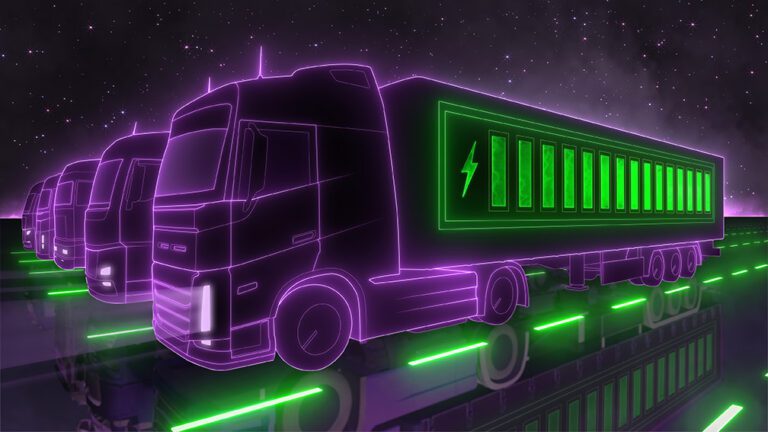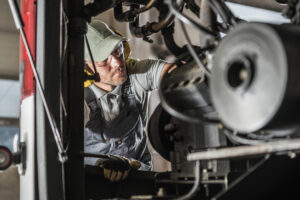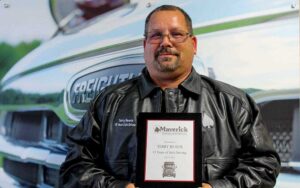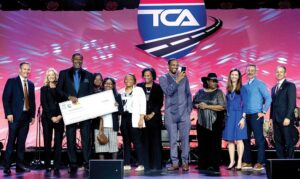MINNEAPOLIS — In a comprehensive report released Thursday, the Minnesota Trucking Association (MTA) says that the rush to transition long-haul and short-haul/regional trucking industry to electric batteries will create a myriad of operational challenges, impede efficient delivery of products and drive up costs for consumers.
The MTA established an Alternative Fuels Task Force to provide an analysis of options for all fuel types and the risks to consumers and businesses by pushing an all-electric fleet, according to a news release.
MTA leaders say they hope this research will lead to meaningful policy and investments that will bolster the industry’s ongoing progress to reduce emissions while supporting trucking’s essential role in the nation’s economy through the transportation of goods and reinforcing supply chain connections.
“The trucking industry has proven that we can achieve both meaningful emission reductions and a stable supply chain if we follow a thoughtful, fuel-neutral developmental process,” said MTA President John Hausladen. “If we don’t get this right and force vehicle electrification over other promising options, it will impact the cost and availability of food, clothing, medicine, appliances, machine parts, and thousands of other goods.”
A Minnesota Trucking Association task force recommends pursuing a wider range of alternative fuel options to help further reduce fossil fuel emissions, highlighting the potential of hydrogen fuel cell and hybrid technologies, among other options, rather than relying on electric big rigs for long-haul operations.
Hausladen called the development gap between electric cars versus heavy-duty trucks “enormous,” adding that the MTA report “noted the transition for 18-wheelers and other heavy-duty vehicles is largely conceptual, and faces challenges with technology and infrastructure that will require substantial government investments over many years.”
The MTA report concluded: “The reality is that Class 7-8 trucks will be powered by internal combustion engines run on diesel or similar fuels for decades to come. Government policies need to acknowledge and address this reality rather than mandate the use of a specific alternative propulsion source – such as electricity – to power heavy trucks.”
Other report findings about the limitations of pursuing an all-electric fleet include:
- Refueling Time — Diesel fueling takes just 15 minutes, allowing a truck to travel approximately 1,200 miles before needing to refuel, while long-haul battery-electric trucks require 5-8 hours to charge and can cover 150-330 miles, assuming chargers are available.
- Infrastructure Challenges — Charging stations for heavy-duty trucks face challenges in both availability and effectiveness, as they need to be widespread and designed to meet the unique power demands of these vehicles.
- Cost Disparity — A new, clean-diesel long-haul tractor typically costs between $180,000 to $200,000, while a comparable battery-electric tractor can cost upwards of $480,000.
- Battery Loss in Cold Weather — Battery electric trucks in cold weather states such as Minnesota are specifically challenged due to the 30-40% reduction in performance.
“The MTA report includes information to serve as a valuable resource for trucking fleets and advises them to follow a go slow approach regarding equipment investments,” the news release states. “The report determined that the development of heavy-duty electric trucks, necessary infrastructure and pricing are not practical for near or mid-term adoption for the long-haul sector.”
The Alternative Fuels Task Force conducted its research and analysis over a six-month period, which included interviews with legislators, regulators, equipment manufacturers, truck dealers/repair facilities, national trucking and energy efficiency associations, and electric utilities.
To access a summary infographic and the complete report, click here.
Born in Pine Bluff, Arkansas, and raised in East Texas, John Worthen returned to his home state to attend college in 1998 and decided to make his life in The Natural State. Worthen is a 20-year veteran of the journalism industry and has covered just about every topic there is. He has a passion for writing and telling stories. He has worked as a beat reporter and bureau chief for a statewide newspaper and as managing editor of a regional newspaper in Arkansas. Additionally, Worthen has been a prolific freelance journalist for two decades, and has been published in several travel magazines and on travel websites.














